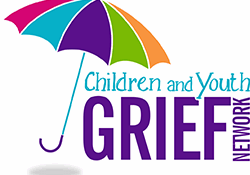Further Classroom Resources
Teacher in Role - TIPS & Tricks
Many of the lesson plans and learning experiences engage the teacher in role drama convention. This Q&A format video offers a discussion on teacher in role tips and best practices to support educators to feel more confident and equip when engaging this convention.
Fostering Healing Classrooms
Emily Gibson (she/her) is a well-being and trauma-informed practice educator and consultant. She helps individuals, schools, communities, and organisations heal and thrive with evidence-based holistic well-being and decolonised trauma-informed strategies. Emily is passionate about supporting schools, through well-being and trauma-informed strength-based approaches to help students regulate their emotions and nervous systems so that they are better able to engage in their learning. Emily believes well-being skills are taught skills. She works with all ages to support them to build awareness of how to engage, express and nurture their mind, body, spirit and emotions through simple and practical practices. Emily promotes a whole school approach and works with all staff to implement strategies and approaches to promote interactions and environments that promote a felt sense of safety reducing behavioural challenges and teacher burnout while support student achievement outcomes.
Learn more about Emily and her work here: www.emilygibsonconsulting.com
Trauma-Informed Practice in the Classroom
Trauma and adversity are an ever-increasing occurrence for young people. 87% of children in Aotearoa New Zealand experience at least one trauma before age 8 (Ministry of Social Development, New Zealand, 2025). Trauma, especially childhood trauma, can impact the way our nervous systems function. Trauma can cause our sympathetic nervous system to alert to danger when there is no actual danger. This can create dysregulated nervous systems which means someone cannot always effectively control their emotional responses. When a young people is in a dysregulated state, they do not have the ability to effectively learn. Further, trauma can impact the healthy development of our brain resulting in sensory, decision-making and cognitive challenges which also hinder young people’s abilities to learn. Schools and educators are in a unique and advantageous position to support young people who have experienced trauma by offering a trauma-informed environment.
Being trauma-informed means that schools have an awareness about the existence of trauma, aim to prevent trauma from occurring, foster regulation skills in students and staff, reduce opportunities for re-traumatizing, and create a culture of safety and care through implementing school-wide trauma-informed principles.
In this video, Emily offers a few trauma-informed strategies schools can incorporate to support students to more effectively learn and to support teacher well-being. Emily offers more fulsome training and support for schools and organization who are looking to weave well-being, psychological safety and trauma-informed, healing centred approaches throughout the whole school.
Regulation Practices for Children
Emily offers some simple practices and activities to incorporate through the day that can support students (and educators!) to feel safe and present in their bodies so they can effectively participate and engage with others.


